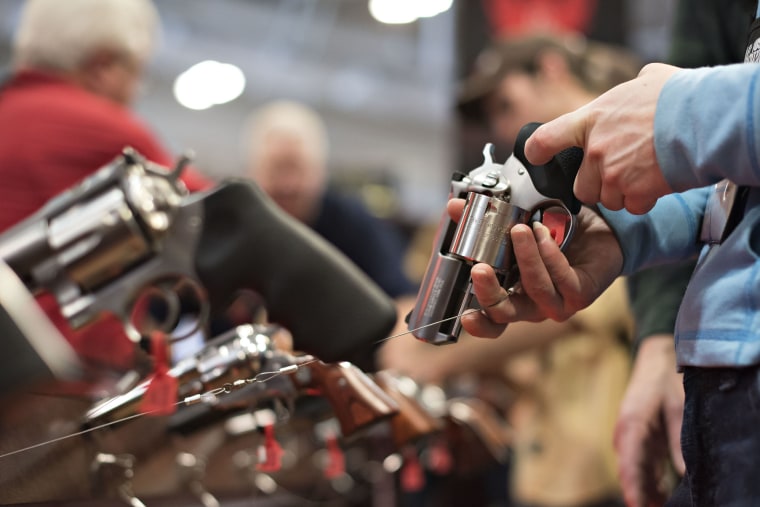The timing wasn't ideal. The House was poised to begin work yesterday on legislation to ease restrictions on firearm silencers, and as the Washington Post's Dana Milbank noted, the work roughly coincided with the first anniversary of the massacre at an Orlando nightclub and the second anniversary of the murders at a Charleston Bible study.
But work on that legislation -- indeed, work on all House legislation -- was put off in light of the terrifying shooting in Northern Virginia yesterday.
It did get me thinking, though, about the proposed changes to federal laws related to silencers. What does the measure, championed by Rep. Jeff Duncan (R-S.C.) -- who, coincidentally, was at yesterday's baseball practice, though he left before the gunman attacked -- do? Politico had a good summary:
Under the 1934 National Firearms Act, silencers are treated similarly to machine guns and explosives. The waiting time to purchase one is far longer than for handguns or other weapons, as much as nine months or more, and buyers have to submit fingerprints and a photograph. Federal law enforcement agencies keep a record of silencer purchases. There is also a $200 transfer tax on silencers.Duncan's proposal would eliminate those requirements, as well as refunding the $200 transfer tax to anyone who has purchased a silencer since October 2015.
That last detail is especially generous. Even if you've already paid the necessary taxes on the purchase of a silencer, Congress is prepared to send you a refund.
The proposal -- named the "Hearing Protection Act" -- is just starting to move forward, but by all appearances, its chances of passing the House are good.
Yesterday's delay, meanwhile, was temporary. There's been no announcement about when the bill on silencers will be taken up again, but consideration of the measure is expected again soon.
For those who want to follow the bill as it moves forward, it's H.R. 367. The proposal has 146 co-sponsors, made up of 143 Republicans and 3 Democrats.
